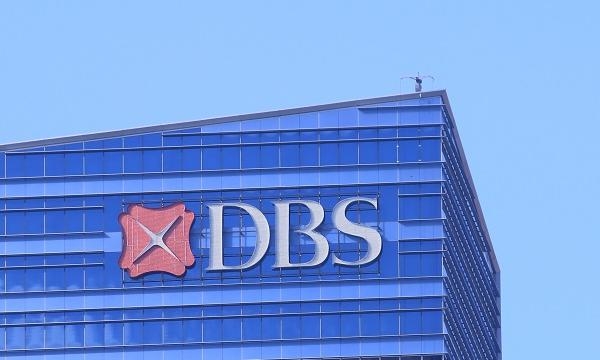
DBS touts new business platforms for 2021 as Q4 net profits fall 33%
Net interest income is 6% lower in FY2020 than the previous year.
DBS’ chief has highlighted the banks new “growth platforms” with a focus on bolstering its position in key markets and its position as a digital finance leader, as the bank saw its net profit and interest income dive for the fiscal year of 2020.
The bank’s net profit declined 33% in Q4 2020, dropping to just $1.01b during the quarter compared to the $1.51b reported in Q4 2019, according to the bank’s latest SGX filing. Net interest income was also 13% YoY lower during the period, totaling $2.12b in Q4 2020 from $2.43b previously.
For the whole fiscal year of 2020, net interest income is 6% lower at $9.08b. Net interest margin was 27 basis points (bps) lower at 1.62%, with most of the decline occurring in the second and third quarters as central banks slashed rates at the end of Q1. The lower interest rates more than offset the impact of higher loan volumes and record growth in current and savings accounts, adds DBS.
Amidst these gloomy results, DBS CEO Piyush Gupta has outlined the bank’s new business platforms in India and China, as well as reinforcing its commitment to digitisation, saying these platforms will strengthen the bank’s ability to both support its customers and deliver shareholder returns.
“Business momentum was sustained in the fourth quarter and our pipeline for loans and fee income is healthy. We have been proactive through the crisis and enter the year with new growth platforms. Lakshmi Vilas Bank in India and the securities joint venture in China will enhance our presence in both key markets,” Gupta said in the bank’s press release accompanying its latest results announcement.
“Initiatives such as the Digital Exchange, supply chain digitalisation and efforts to broaden wealth management to the mass market will reinforce our leadership in digital finance. These platforms will strengthen our ability to continue supporting customers and delivering shareholder returns,” he added.
The board proposed a final dividend of 18 cents per share. The scrip dividend scheme will be applicable, with scrip dividends to be issued at the average of the closing share prices on 7 and 8 April 2021.
DBS’ total loans grew 4% by $16b in constant-currency terms to $371b. This was driven by a 9% of $19b growth of non-trade corporate loans to $221b, led by drawdowns in Singapore and Hong Kong.
On the other hand, trade loans fell 13% or $6b to $38b due to less attractive pricing as well as due to lower transaction values from lower oil prices.
Meanwhile, consumer loans were stable at $114b, whilst housing loans were little changed as declines in the second and third quarters due partly to the circuit breaker were offset by a recovery in Q4. Overall, loan-related fees were 2% higher at $417m.
Total deposits grew 15% or by $61b to $465b in FY 2020.
Fee income was little changed, totalling $3.06b during the whole year. The bank’s 14% increase in fee income for the first quarter was immediately offset by an 11% decline in the second quarter, as transactions fell as markets in the region locked down.
Notably, wealth management fees grew 11% to a record $1.43b for the who fiscal year, with the first and third quarters the two highest on record. DBS noted that demand for investment products increased with healthy risk appetite in the first quarter and improved market sentiment in a low interest rate environment in the last six months of the year.
Furthermore, brokerage commissions increased 31% to $149m with higher stock market volumes and increased new digital account openings.
However, these increases were offset by lower card and investment banking fees. Card fees fell 19% to $641m, whilst investment banking fees were 31% lower at $148m.
As a result, the full-year Consumer Banking / Wealth Management income declined 8% to $5.77b, with the impact of lower interest rates as well as lower bancassurance and card fees moderated by higher investment and treasury product income.
Institutional Banking income also slipped 5% to $5.75b as the impact of lower interest rates more than offset higher income from loans and treasury.
Meanwhile, Treasury Markets income increased 54% to $1.44b from favourable market conditions.
























 Advertise
Advertise






